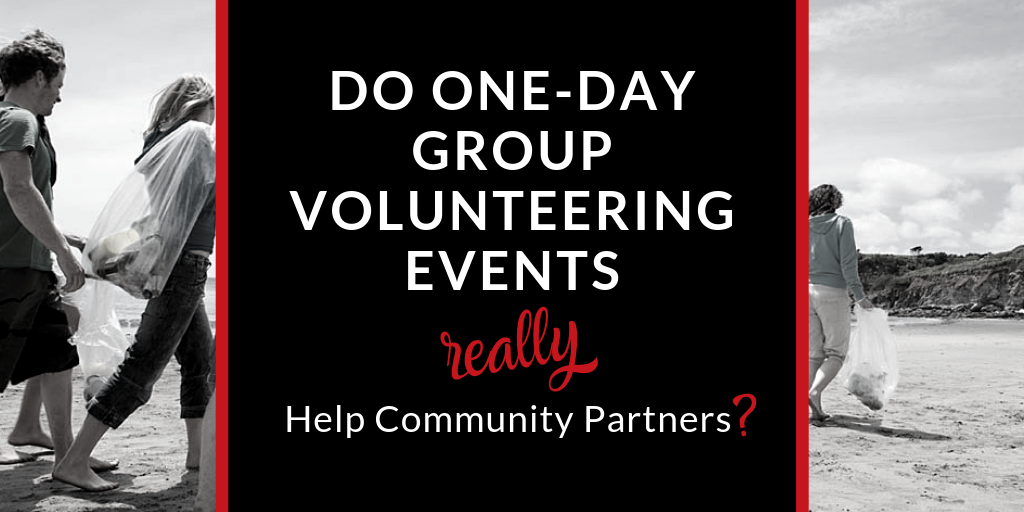
Employer-Supported Volunteering (ESV) is any activity undertaken by an employer to encourage and support the volunteering of their employees in the community, which often takes the form of a one-day group volunteering event.
There are many options and strategies employers can use to engage their employees. Employers may enact company-wide days of service, flex time, rewards programs or even microvolunteering. It’s in the employer’s best interest to offer some support; 68% of Canadians would choose a job with a company that has a strong volunteering culture over one that does not.
Most common amongst ESV is an opportunity where a group of employees visit a community partner for a full day or half day to complete a ‘hands on task’. The task depends on the community partner, but common examples are outdoor clean up projects, serving a meal, or packing items for distribution.
For community partners, the benefit of offering single day opportunities is sometimes disputed. Some use them effectively to advance their mission, either through fulfilling day to day needs or a new project not possible without the company’s injection of volunteers and financing for the project. Conversely, some community organizations feel that planning and managing employee groups are a drain on finite staff resources, that projects are not impactful, and the usually hoped-for prospect of a longer-term corporate partnership or community investment never materializes. In fact, Volunteer Canada research shows that agreeing to – or rejecting – a request to engage employees volunteering almost never figures into company donations or sponsorship decisions.
For some community partners, due to space constraints or the nature of their mission, it might not be in their best interest to offer single day volunteering. For others, we propose a realignment. Rather than viewing the opportunity solely as an interaction with a corporate entity, view prospective volunteers as members of the community. With the rise of Individual Social Responsibility, employers are increasingly allowing their employees to lead volunteer days, rather than using a top-down model. Most likely, the lead volunteer requesting the opportunity is passionate about supporting your organization’s focus and can be a great ally.

The composition of volunteers will likely be diverse, some having never volunteered before or at least not since high school and with different motivations – some may have signed up just to be sociable. According to Statistics Canada, 44% of Canadians volunteered in 2013, meaning 56% did not volunteer. Your single day volunteering experience encourages these employees to learn about their community, develop prosocial behaviour, experience the joy of altruism and potentially put them on a path to find something they are passionate about in order to continue volunteering. For some employees, it may be the beginning of a longer volunteer commitment with your organization.
At a minimum, employer-supported volunteers may learn about the community partner and who they support. Chris Jarvis, co-founder of Realized Worth, divides group volunteering experiences into two categories – transactional and transformational. What elevates an experience into a transformational one is to effectively communicate why the task accomplished by volunteers matters and bring to life who it benefits.
In all of these ways, employer-supported volunteerism has the potential to embody each of the elements we highlight in the Value of Volunteering Wheel, building confidence, competence, connections and community. By opting for a model that focuses on the quality of experience for volunteers as opposed to a stepping stone for a relationship with the employer – community organizations can best approach the volunteering request through how the activity benefits their mission and how it builds engaged citizens.
Related resource: 9 Things Charities Want Companies to Know About Asking to Volunteer
This blog was adapted and updated from the previously published blog on April 16, 2018.
